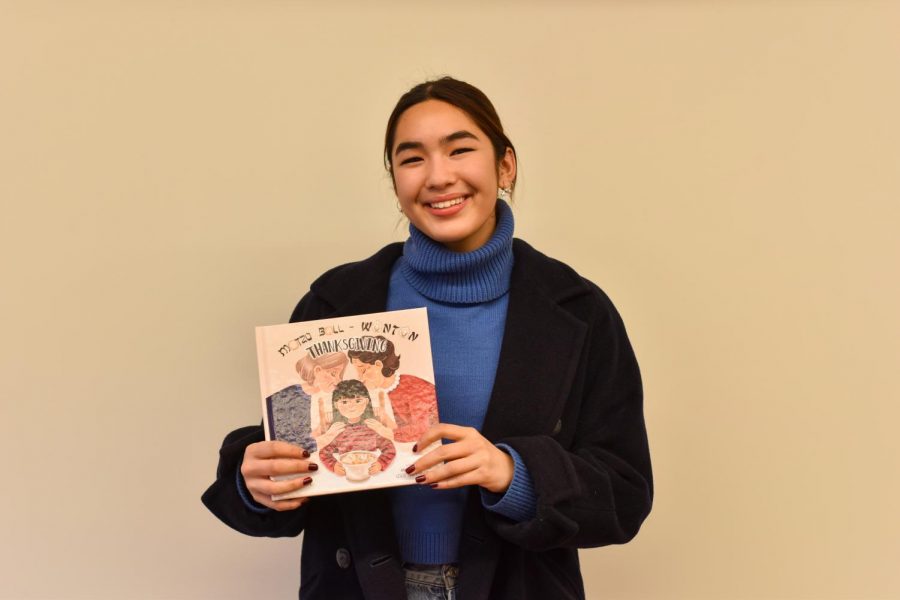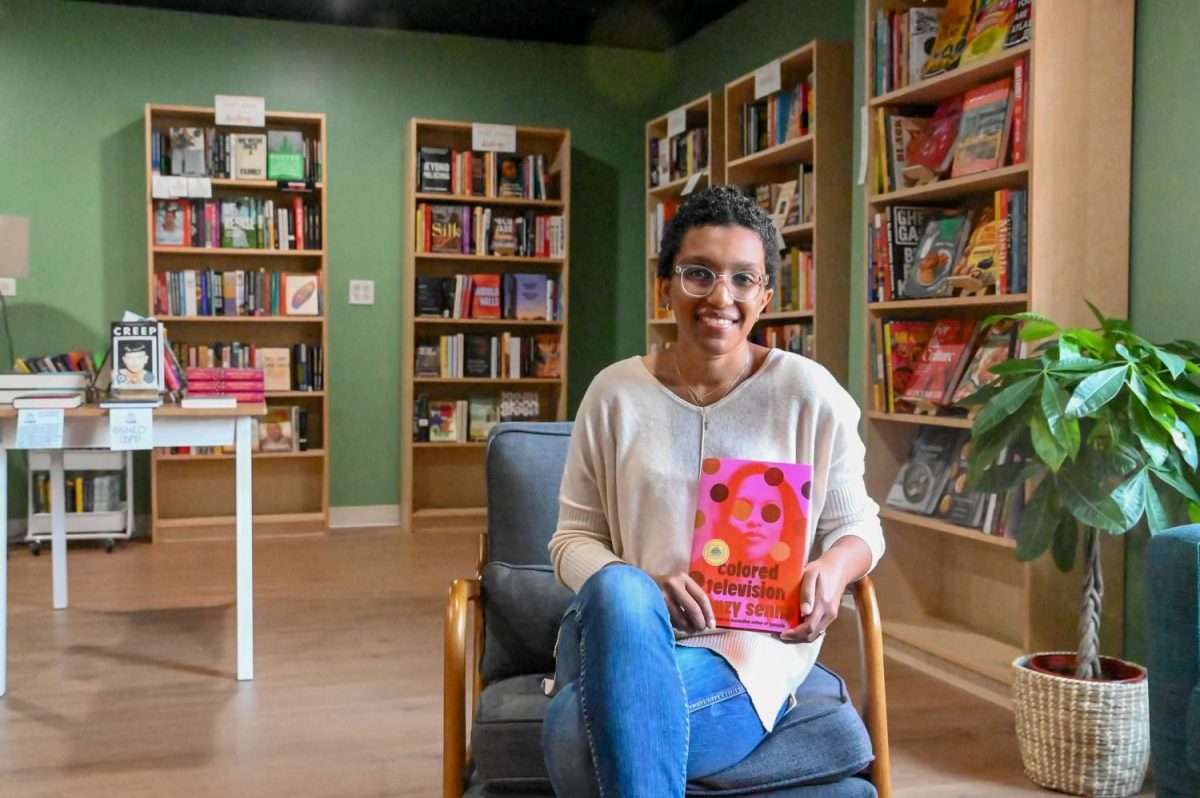One book, two cultures: Junior writes children’s book exploring intersectionality, multicultural heritage
Amelie Liu poses with her book, “Matzo-Ball Wonton Thanksgiving.” The book tells the story of a younger Amelie’s experience with balancing different cultural identities over Thanksgiving.
December 17, 2021
The pastel-colored pages of a children’s book open to a young girl celebrating Thanksgiving with her family. Her house is filled with the warm smells of food made by her grandmothers: rich Matzo ball soup, hearty wontons — but wait! Where is the turkey? Can it be Thanksgiving without turkey?
Junior Amelie Liu has recently published her first children’s book, “Matzo Ball-Wonton Thanksgiving,” a heartwarming story of a girl discovering the significance of her multicultural heritage with the help of her Chinese and Jewish grandmothers, just in time for Thanksgiving.
Not a coincidence, the main character of the book is named Amelie, and the story is partly based on her own experiences as a Chinese Jewish dual heritage girl navigating the world of American cultural traditions.
“It’s definitely based on my own life,” Amelie said.
“Matzo Ball-Wonton Thanksgiving” is currently at Barnes & Noble and on Amazon. All proceeds from the book will go toward the National Alliance for Children’s Grief (NACG), a non-profit that supports and educates bereaved children.
Amelie feels a close connection to the NACG, as her own father died when she was 7. She has researched and worked closely with the organization in the past to create a curriculum for teens who have lost their parents.
“It’s a non-profit that’s very close to my heart. I’ve done a lot of grief talks with them,” she said, “so I wanted to donate the proceeds to an organization that I know will help teens.”
For Amelie, the idea to write a book came during the pandemic after witnessing nationwide movements such as “Stop Asian Hate” and “Black Lives Matter,” issues that challenged her to think of her identity as an Asian American and Jewish person in a new way. She said she became hyper-aware of her identity as an Asian American and as a Jew.
“I think also during quarantine, I was forced to confront the loss of my father and the loss of connection to my Chinese heritage,” Amelie said. “Because I had so much time to myself, I had to kind of overanalyze my own brain. I think that’s when I really realized the importance of my identity and the importance of young children understanding their intersectionality and feeling pride in it.”
Amelie worked on the book for over 18 months with the guidance of her grandmother, or “bubbe,” Leslie Lewinter Suskind, and collaborated with Maria Dmietrieva for the illustrations.
“I wrote in an initial draft to my bubbe, and then it obviously went through countless and countless edits, and then to the illustration process. So all of that was about a year and a half, and now we’re here.”
The process had its challenges. Amelie said she initially underestimated the difficulty of writing a children’s book. Since children’s books only have a few words per page, the task of sharing her complex message became even more difficult.
“What I really needed to do was translate a very, very complicated message into very
simple words. That was definitely a challenge,” Amelie said. “I had to really refine and truly understand what I wanted to communicate in order to put that simply for children.”
So far, she’s communicated successfully. Amelie and her bubbe visited multiple primary school homerooms to share the book, including the class of Amelie’s former kindergarten teacher, Delores Rita.
As an Asian woman herself, Ms. Rita found she connected with the book at a deeply personal level. She said even her 4-year-old students were able to grasp parts of the book’s main message, such as Amelie’s decision to spill her grandmother’s Matzo ball soup the night before Thanksgiving.
“They could understand that spilling the soup was a big deal, that grandmother’s not going be upset by it, and can explain, ‘Yes, you can have whatever foods you’d like at Thanksgiving,’” she said.
And, of course, Ms. Rita’s students all loved Amelie and the story.
“They did ask if she was going to come back and read another book,” Ms. Rita said, laughing.
Amelie dedicated her first children’s book to her family for their tireless and unconditional support.
“I dedicate everything to them because I think they’ve really helped me understand my identity. They’ve been super supportive throughout this whole process,” Amelie said. “Without them, I definitely would not have written the book, especially because they’ve played such an integral role in giving me a platform and people to talk to.”












